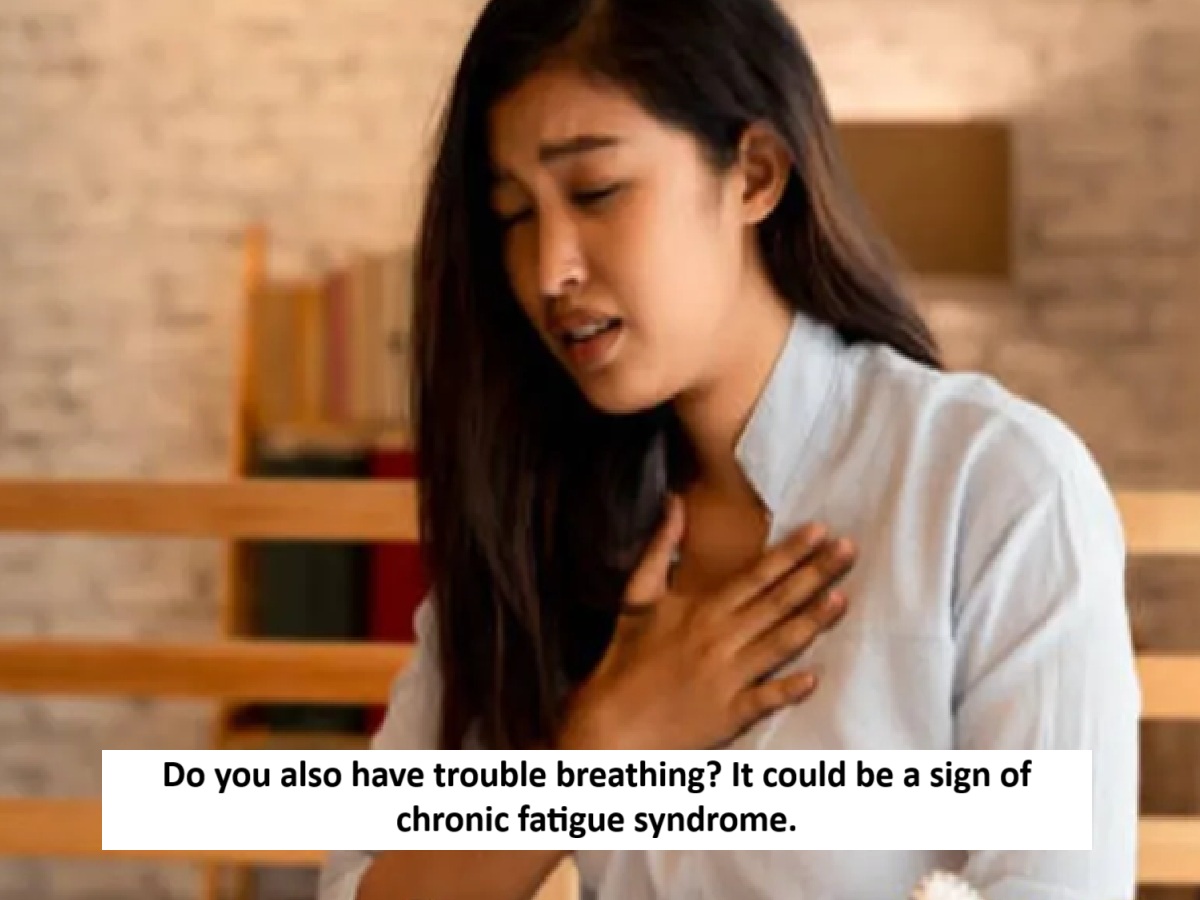
News Topical, Digital Desk : Patients with chronic fatigue may have abnormal breathing patterns. This irregular breathing pattern is often associated with dysautonomia, which is caused by abnormal nerve control of blood vessels and muscles.
Additionally, insomnia, sleep disorders, and lung diseases can also cause abnormal breathing in fatigue patients, which can further aggravate chronic fatigue.
Researchers have found that people with chronic fatigue syndrome (CFS) may experience difficulty breathing, which provides a target for treatment and could relieve symptoms.
Chronic fatigue syndrome is marked by fatigue despite rest and cognitive problems such as brain fog and difficulty concentrating. Researchers from the Icahn School of Medicine at Mount Sinai, US, monitored 57 patients diagnosed with chronic fatigue syndrome while they were performing physical activity.
Lack of coordination between the chest and abdomen
The results were published in the journal Frontiers in Medicine. They show that abnormal breathing can manifest as normal deep breathing, excessively rapid breathing, or shallow breathing, which can impair lung function. Lack of coordination between the chest and abdomen can also prevent the muscles that help with breathing from functioning properly.
"We know the symptoms of hyperventilation, and we're not sure which symptoms may be more severe with abnormal breathing, but we are certain that patients can experience abnormal breathing without being aware of it," said study author Dr. Donna Mancini.
Difficulty breathing and hyperventilation are common
"Difficulty breathing and hyperventilation are common in patients with ME/CFS (chronic fatigue syndrome)," the authors wrote. "This may offer a new therapeutic target for these patients." The participants, who also included 25 healthy people, had their heart rate and blood pressure measured while performing cardiopulmonary exercises over two days.
71 percent experienced respiratory problems
The researchers said that participants' breathing patterns, including how fast, how forcefully, or how effectively they breathed to obtain oxygen, were observed to distinguish between hyperventilation and abnormal breathing. While participants with chronic fatigue were observed to take in the same amount of oxygen as healthy people, 71 percent experienced respiratory problems, either hyperventilation, abnormal breathing, or both.
The researchers said that both abnormal breathing and hyperventilation can cause symptoms similar to chronic fatigue, such as dizziness, difficulty concentrating, shortness of breath, and fatigue. A combined study of nine chronic fatigue patients experienced abnormal breathing and hyperventilation. This can also cause people to experience heart palpitations, chest pain, fatigue, and anxiety. The team suggested that respiratory problems may exacerbate or even directly contribute to post-exertional malaise.
--Advertisement--

 Share
Share



